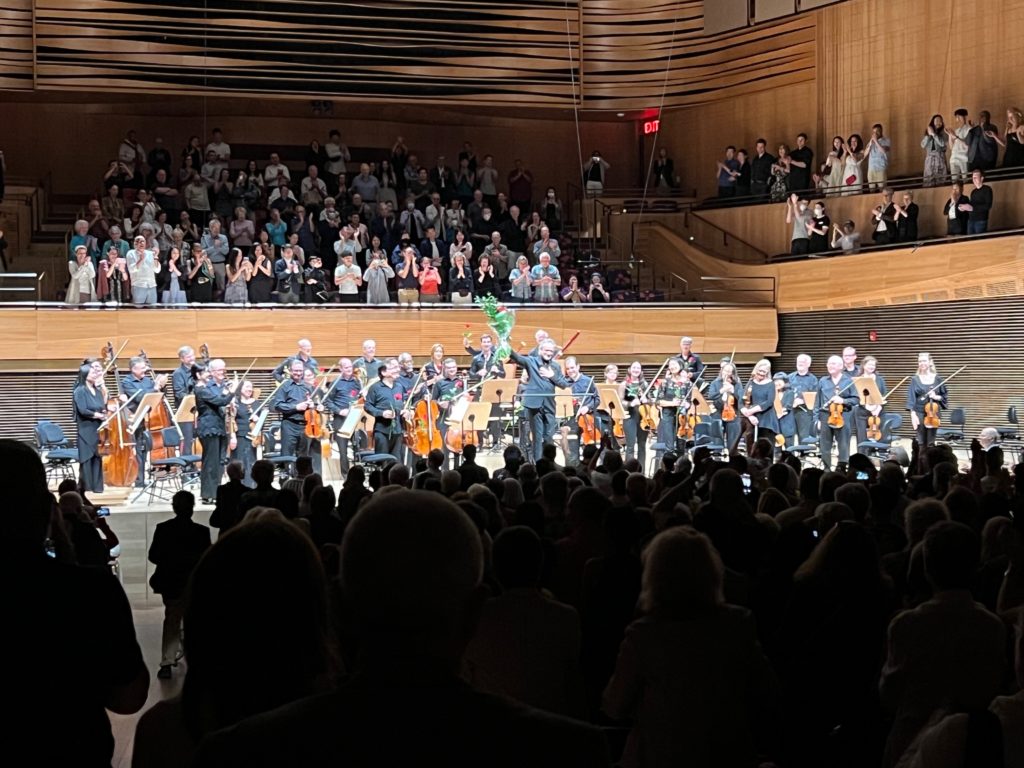VIEWPOINTS – The end of an era: Bidding a very fond farewell to the longstanding MOSTLY MOZART FESTIVAL and beloved maestro Louis Langrée
- By drediman
- August 14, 2023
- No Comments

This summer marks the final season of Lincoln Center’s longstanding Mostly Mozart Festival. Originally established in 1966 as “Midsummer Serenades: A Mozart Festival”, the indoor summer festival was rebranded in 1970 as the Mostly Mozart Festival – that is, until this past weekend, during which the festival’s hand-picked orchestra played its final concert, officially retiring the Mostly Mozart, at least as we currently know it. Over the course of its extraordinary run, the festival has given New York music lovers the opportunity to indulge in classical music during the city’s “off” summer months. Given the more intimate chamber-like nature of the performances, Lincoln Center modified the seating layout of Geffen Hall (then the Avery Fisher Hall), pushing the playing area into the auditorium and placing audiences on the stage. The modification proved to be a critical success, and the layout is widely considered the primary prototype for the hall’s current acclaimed configuration.
For this last season, I attended a pair of concerts — the first and the last — both of which exemplified why the festival lasted as long it has. Both were conducted by the festival’s music director Louis Langrée, a beloved figure who has proven to be Mostly Mozart’s inspired and tireless leader and dependable maestro for an astonishing 21 seasons. The first concert commenced with the world premiere of Amir ElSaffar’s Dhikra (or “Remembrance”), an aural cornucopia arising from the dialogue between an array of musical traditions, namely Western classical music, Middle Eastern folk music, and jazz. If the the mash-up wasn’t always elegant — which is perhaps ElSaffar’s intent — his investigation of loss, identity, and evolution was never less than expressive, especially as informed by Two Rivers Ensemble. The opening concert concluded with a generous performance of Mozart’s Mass. The orchestra rose admirably to the piece’s more operatic requirements, as did the chorus and soloists (soprano Erin Morley was especially sparkling).
Almost defiantly, the final set of concerts featured an all-Mozart program, which included the composer’s final three symphonies (Numbers 39-41).
Animatedly and enthusiastically annotated by Langrée, the maestro emphatically championed Mozart’s work until the bitter end, painstakingly pointing out the composer’s masterful craft and deep belief of his music’s humanity and universality. Indeed, in terms of the music-making, the contrasting shades of human nature were transparently transmuted through the Mostly Mozart Orchestra’s warmth and harmonious rapport with Langrée. Particularly triumphant was the final “Jupiter” symphony, an ode to joy that felt as natural as breathing. As an encore, Langrée and his Mostly Mozart forces regurgitated the final stretch of the triumphant final movement. Suffice to say, it was met with waves of heartfelt ovations. Hopeful for the future, it’s hard nonetheless not to mourn the end of an era.
HIGHLY RECOMMENDED
MOSTLY MOZART FESTIVAL
Classical Music
David Geffen Hall
Approximately two hours (including an intermission)
Closed

 Copyright © 2024
Copyright © 2024
Leave a Reply